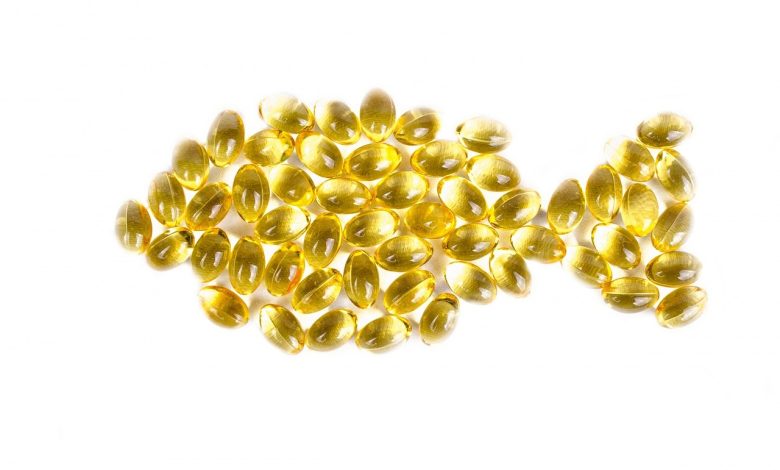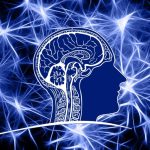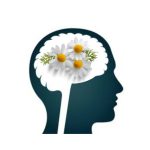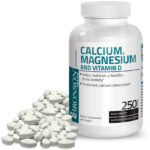10 Super Supplements That Help with Brain Zaps

The human brain, with its approximately 86 billion neurons interconnected by trillions of synapses, is an intricate network that governs every aspect of our existence. It is the command center for our body, regulating automatic functions like breathing and heart rate, while also facilitating complex cognitive processes such as decision-making and memory retention. This marvel of biological engineering ensures our survival and allows us to navigate the world with unparalleled sophistication. However, despite its resilience, the brain is susceptible to various influences that can disrupt its harmonious functioning.
In the hustle and bustle of modern life, stress has become a ubiquitous companion for many individuals. Whether it stems from professional demands, personal relationships, or financial pressures, chronic stress can take a toll on the nervous system. The brain’s intricate web of neurotransmitters and signaling pathways can become dysregulated under prolonged stress, leading to unusual sensations known as brain zaps. Similarly, persistent fatigue, often a consequence of our hectic lifestyles, can compromise the brain’s efficiency. When the brain lacks the necessary energy and resources, it may respond with electrical sensations that manifest as sudden, jolting shocks—an experience commonly referred to as brain zaps. Furthermore, certain medications, particularly those affecting neurotransmitter levels, can also be implicated in triggering these sensations, adding a layer of complexity to the understanding of this phenomenon.
The distinctive nature of brain zaps lies in their unexpected and jarring quality, making them a disconcerting occurrence for those who experience them. The sensation is often likened to an electric shock coursing through the brain, catching individuals off guard and momentarily disrupting their cognitive focus. Such interruptions can be particularly challenging in daily life, affecting concentration, mood, and overall well-being. Given the multifaceted nature of the factors contributing to brain zaps, finding effective strategies to manage and alleviate these sensations involves a comprehensive approach that addresses not only the symptoms but also the underlying causes.
Fortunately, there are several supplements that show promise in alleviating brain zaps and promoting overall brain health. In this article, we will explore 10 supplements renowned for their cognitive benefits and potential to mitigate the discomfort associated with brain zaps.
10 Good Supplements That Help with Brain Zaps
The following 10 supplements have been shown to have cognitive benefits and potential to mitigate the discomfort associated with brain zaps:
1. Omega-3 Fatty Acids
Omega-3 fatty acids, particularly eicosapentaenoic acid (EPA) and docosahexaenoic acid (DHA), are essential components for optimal brain function. Found abundantly in fatty fish like salmon, mackerel, and sardines, these fatty acids contribute to the structural integrity of brain cells and help regulate neurotransmitter activity. Studies suggest that omega-3 supplementation may enhance cognitive function, reduce inflammation, and potentially alleviate symptoms associated with brain zaps.
2. Magnesium
Magnesium is a vital mineral involved in over 300 biochemical reactions in the body, including those that support brain function. It plays a crucial role in nerve transmission and neuromuscular conduction. A deficiency in magnesium has been linked to increased susceptibility to brain zaps. Therefore, incorporating magnesium-rich foods like nuts, seeds, and leafy greens or taking magnesium supplements may help regulate neuronal activity and reduce the occurrence of brain zaps.
3. Vitamin B Complex
The B-vitamin complex, including B1 (thiamine), B6 (pyridoxine), and B12 (cobalamin), is essential for maintaining a healthy nervous system. Deficiencies in these vitamins have been associated with neurological symptoms, including tingling sensations and electric shock-like feelings in the brain. Supplementing with a B-complex may help correct deficiencies and support nerve function, potentially reducing the frequency and intensity of brain zaps.
4. Ginkgo Biloba
Derived from the leaves of the Ginkgo biloba tree, this herbal supplement has a long history of use in traditional medicine for its cognitive-enhancing properties. Ginkgo biloba is believed to improve blood flow to the brain, enhance memory, and protect against oxidative stress. Some individuals have reported a reduction in brain zaps when taking Ginkgo biloba, although more research is needed to establish a definitive link.
5. L-Theanine
L-Theanine is an amino acid primarily found in tea leaves, especially in green tea. Known for its sleep, relaxing, and stress-reducing effects, L-Theanine has been studied for its potential to modulate brain waves and improve cognitive function. While the evidence linking L-Theanine directly to the alleviation of brain zaps is limited, its calming properties may indirectly contribute to reducing stress and anxiety, which are known triggers for this phenomenon.
6. Rhodiola Rosea
Rhodiola Rosea, an adaptogenic herb, has gained popularity for its ability to combat stress and fatigue. This herb is believed to enhance mental performance, reduce mental fatigue, and improve mood. Since stress is a known factor that can trigger brain zaps, incorporating Rhodiola Rosea into one’s supplement regimen may help manage stress levels and mitigate the frequency of these unsettling sensations.
7. N-Acetylcysteine (NAC)
N-Acetylcysteine, or NAC, is a compound that replenishes glutathione, a powerful antioxidant in the body. Beyond its antioxidant properties, NAC has shown promise in modulating glutamate, a neurotransmitter involved in nerve signaling. Some studies suggest that taking N-acetylcysteine (NAC) in the morning may have neuroprotective effects and could potentially alleviate symptoms associated with brain zaps. However, more research is needed to establish a clear connection.
8. Curcumin
Curcumin, the active compound in turmeric, has powerful anti-inflammatory and antioxidant properties. Chronic inflammation is implicated in various neurological disorders, and reducing inflammation may have a positive impact on overall brain health. While there is limited research on curcumin specifically addressing brain zaps, its anti-inflammatory effects make it a promising candidate for promoting neurological well-being.
9. Coenzyme Q10 (CoQ10)
Coenzyme Q10, or CoQ10, is a crucial component of the energy-producing machinery within cells. It is particularly abundant in organs with high energy demands, such as the brain. Some studies suggest that CoQ10 supplementation may improve cognitive function and protect against neurodegenerative diseases. Studies have shown that CoQ10 is better taken at night with a meal containing fat so that your body can easily absorb it. While more research is needed to explore its direct impact on brain zaps, maintaining optimal energy production in brain cells could contribute to overall neurological health.
10. Ashwagandha
Ashwagandha is an adaptogenic herb with a long history of use in traditional Ayurvedic medicine. Known for its stress-reducing properties, Ashwagandha may help regulate cortisol levels and support the body’s ability to adapt to stressors. Since stress is a common trigger for brain zaps, incorporating Ashwagandha into one’s routine may contribute to a calmer nervous system, potentially reducing the occurrence of these sensations. Ashwagandha is best taken at night before going to bed because of its potent relaxation and sleep-enhancing benefits.
Conclusion
Brain zaps can be a perplexing and distressing experience, but a holistic approach that includes lifestyle changes, stress management, and the right supplements may offer relief. It’s important to note that individual responses to supplements can vary, and consulting with a healthcare professional before introducing new supplements is advisable, especially if you are taking medications or have underlying health conditions. By nourishing the brain with essential nutrients and adopting a comprehensive approach to well-being, individuals may find relief from brain zaps and support the overall health of this remarkable organ.





